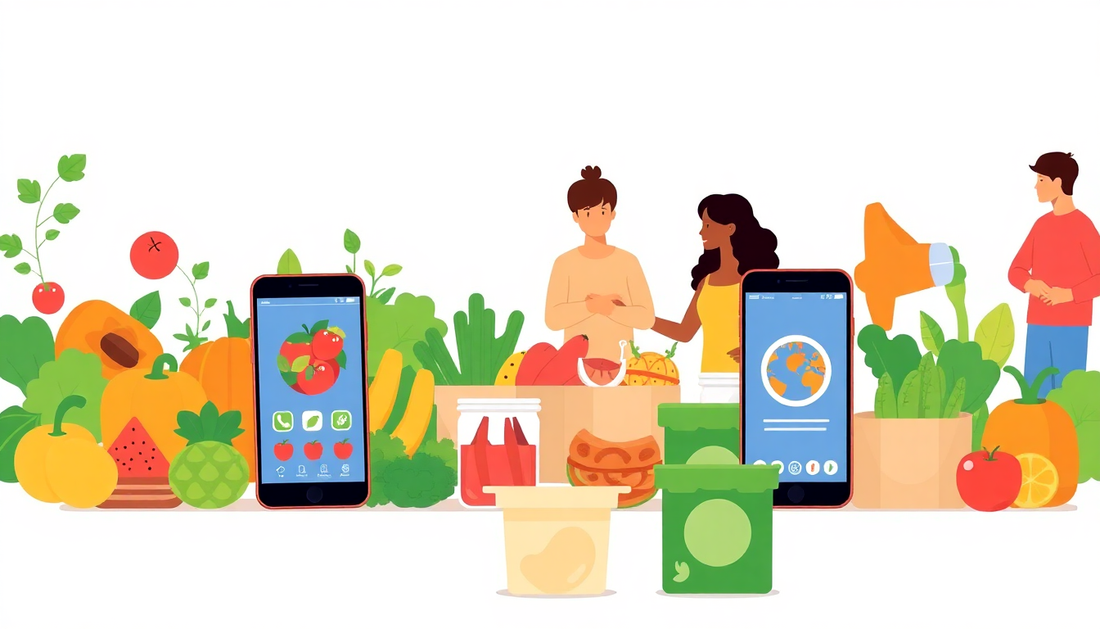In today's world, where sustainability and environmental consciousness are becoming increasingly important, the issue of food waste has emerged as a pressing concern. As we strive to create a more sustainable future, innovative solutions like food waste reduction apps have gained significant traction. One such app that has gained global recognition is Too Good To Go, a platform that connects consumers with businesses to reduce food waste. However, as the demand for such solutions grows, a variety of alternative apps have also emerged, each offering unique features and approaches to tackling this pressing issue.
Understanding Too Good To Go
Too Good To Go is a mobile application that aims to connect consumers with businesses that have surplus food at the end of the day. The app allows users to purchase these "magic bags" of food at a discounted price, preventing the food from going to waste. The concept is simple yet impactful, as it not only saves consumers money but also contributes to a more sustainable food system.
The app's key features include the ability to browse and purchase discounted food items from local businesses, track the environmental impact of your purchases, and even share your experience with the community. With a presence in over 17 countries and a growing user base, Too Good To Go has become a global leader in the fight against food waste.
Alternative Food Waste Apps
While Too Good To Go has undoubtedly made a significant impact, it is not the only app tackling the issue of food waste. Several other innovative solutions have emerged, each with its own unique approach and features. Let's explore a few of these alternative apps:
Olio
Olio is a peer-to-peer food sharing app that allows users to share surplus food with their neighbors, rather than letting it go to waste. The app encourages a community-based approach to reducing food waste, empowering individuals to take action and make a difference in their local areas.
Karma
Karma is a Swedish-based app that partners with restaurants, cafes, and grocery stores to offer discounted surplus food. Unlike Too Good To Go, which focuses on end-of-day food, Karma also includes items that are nearing their expiration date but are still perfectly edible.
Flashfood
Flashfood is a Canadian-based app that connects consumers with grocery stores that have surplus food. The app allows users to browse and purchase discounted items, often at a fraction of the original price, and then pick them up directly from the store.
ResQ Club
ResQ Club is a European-based app that focuses on reducing food waste from restaurants and cafes. The app allows users to purchase discounted meals and snacks that would otherwise be thrown away, providing a convenient and sustainable solution for both consumers and businesses.
Comparative Analysis
As the number of food waste reduction apps continues to grow, it's essential to understand the unique features and benefits of each platform. When comparing Too Good To Go and its alternatives, several key factors come into play:
Pricing Models
The pricing models of these apps can vary, with some offering fixed discounts on surplus food, while others allow businesses to set their own prices. Understanding the pricing structure can help consumers make informed decisions and maximize their savings.
User Experience
The user experience of these apps is also an important consideration, as it can impact the overall ease of use and engagement. Features like intuitive navigation, clear communication of available items, and seamless checkout processes can all contribute to a positive user experience.
Availability and Reach
The geographic availability and reach of these apps can also be a significant factor, as consumers may prioritize solutions that are widely accessible in their local areas.
Sustainability Impact
Ultimately, the primary goal of these apps is to reduce food waste and promote sustainability. Evaluating the overall impact of each platform, in terms of the amount of food saved and the environmental benefits, can help consumers make informed choices that align with their values.
Pros and Cons of Food Waste Apps
While food waste reduction apps have undoubtedly made a positive impact, it's important to consider both the benefits and potential limitations of these solutions.
Benefits for Consumers
Consumers can enjoy significant cost savings, access to discounted high-quality food, and the satisfaction of contributing to a more sustainable food system.
Benefits for Businesses
Businesses can reduce food waste, improve their environmental credentials, and potentially attract new customers through these platforms.
Potential Limitations
Some limitations may include the availability of participating businesses, the reliability of food quality and freshness, and the potential for overconsumption or impulse purchases.
Maximizing Food Waste App Usage
To make the most of these food waste reduction apps, consumers can follow a few best practices:
- Research and compare different app options to find the one that best suits their needs and location.
- Develop a routine of regularly checking the apps for available deals and discounts.
- Communicate with businesses and provide feedback to help improve the user experience.
- Encourage friends and family to also use these apps, creating a ripple effect of food waste reduction.
The Future of Food Waste Reduction Technology
As the world continues to grapple with the issue of food waste, the future of technology-driven solutions looks promising. Emerging trends, such as the integration of artificial intelligence and machine learning, could lead to even more sophisticated and personalized food waste reduction tools. Additionally, the growing focus on global sustainability goals, such as the United Nations' Sustainable Development Goals, will likely drive further innovation and collaboration in this space.
Conclusion
In the fight against food waste, apps like Too Good To Go and their alternatives have emerged as powerful tools for driving change. By connecting consumers with businesses, these platforms offer a convenient and sustainable solution that benefits both individuals and the environment. As the demand for such solutions continues to grow, it's crucial for consumers to explore the various options, understand their unique features, and make informed choices that align with their values and contribute to a more sustainable future.

